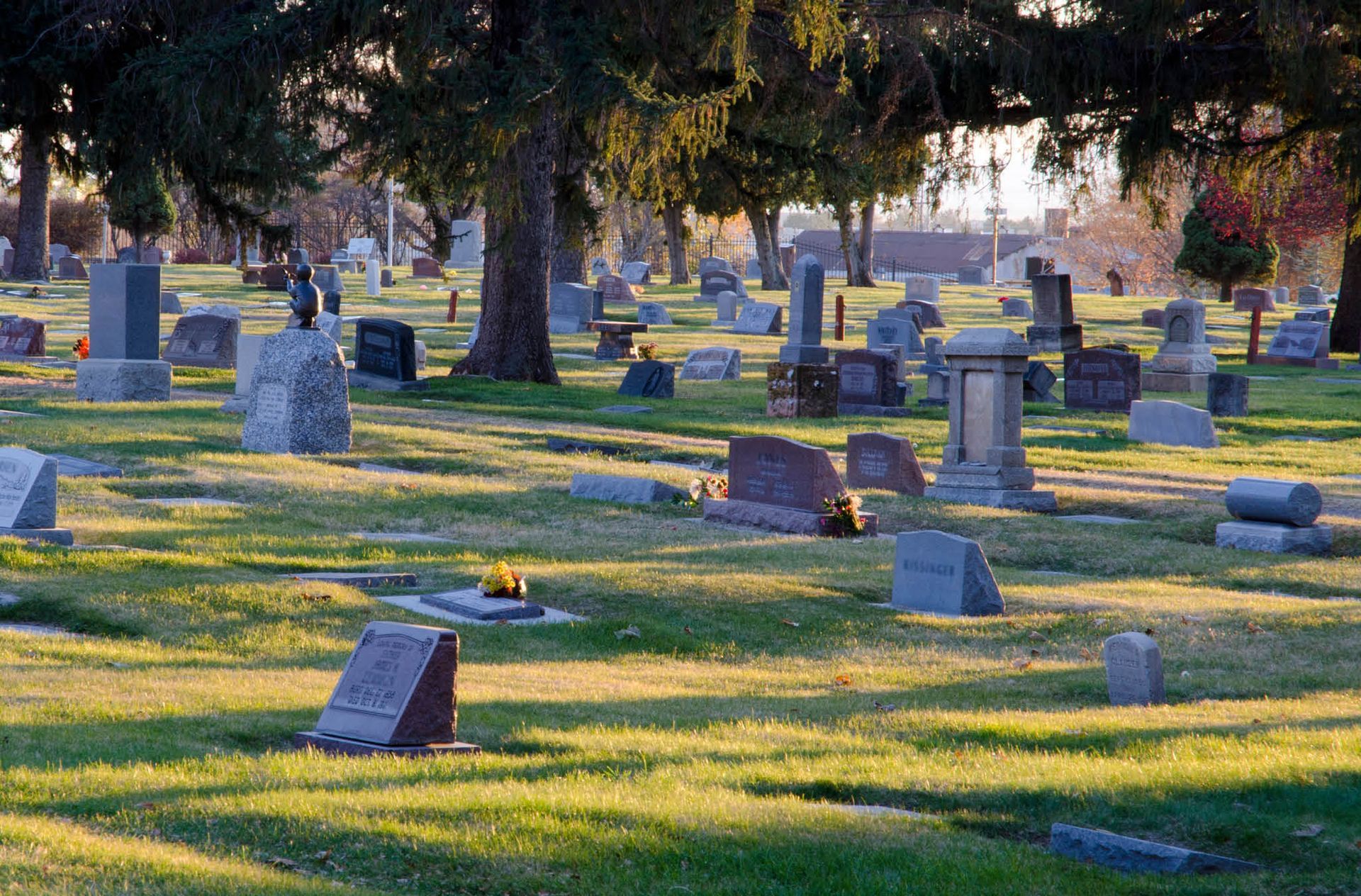The Final Say – Writing Your Own Obituary

Today, it’s not unusual for obituaries to go viral. The reasons are often the tone (poignant to acerbic), length (War & Peace-type tomes to extreme brevity), or content (move-you-to-tears recollections to the airing of family grievances). Which begs the question: who is responsible for penning the sensational piece? Was it the deceased themselves or a well-meaning family member? Recently, a pair of brothers included the following in their father’s obituary, “In lieu of flowers, please place an irresponsibly large wager on Nebraska beating Iowa.” The brothers cited their dad’s love for the Cornhuskers and gambling as their reason for their request.
The Importance of Obituaries and Why You Should Write Your Own
Obituaries serve an important part in society. They honor and memorialize the deceased, inform the community and public of the loss, assist in the grieving process, and share funeral details and final arrangements. It also provides an overview of the deceased.
When it comes to your last communication out to the world – you know you best. Writing your own obituary is your chance to punctuate your life in the way you feel most represents you. Plus, it is a very kind gift to your loved ones, who in their hours of grief, are bound to have a difficult time trying to write a piece they deem worthy.
Personal Reflection
Writing your own obituary is not a harbinger of bad things to come. You still have places to go and people to see! In fact, this exercise also offers you the opportunity to take stock of where you are in life, how you got there, and if you are on a path you always envisioned. These ruminations will assist in crafting a legacy that is uniquely and deliberately yours.
The truth is life is not limitless – and, undoubtedly you want to make the most of it by living intentionally and not just aimlessly being swept along. Ask yourself if your current existence is reactive versus proactive. If so, that’s ok, you’ve got time to redirect your course! Daydream the following thoughts:
- Do I like the path I’m on? What is my life purpose?
- What is missing from my life? What is overtaking my life?
- Am I happy with the legacy I am creating?
- Do I have regrets? Can I readdress them?
Treat your obituary as an inspirational map for your ambitions, dreams, and alternate paths.
Good-to-Knows
Here are some quick facts about obituaries before you start crafting your own. They typically average around 200 words. It is important to keep this in mind as traditional placement of obituaries remains in print newspapers. Each newspaper is different in their way of considering length, but larger newspapers tend to charge by the inch or line. On average, pricing starts at $200 and can quickly total up to approximately $1000. If length is an issue, wouldn’t you rather have control of paring it down than someone else?
Step 1 – Brainstorm
Although you are your own best expert on yourself, that doesn’t mean that summing up your life and last statements comes easily. Instead of creating a resume of events and accomplishments, find ways of intertwining facts with anecdotes and recollections. Here are some ideas and questions that can get the wheels turning:
- What words best describe your life? A common and effective writing prompt is the 3- to 6-word memoir, an idea launched by Smith Magazine. The responses led to a book called Not Quite What I Was Planning – 1000+ of the best 6-word memoirs.
- What has life meant to you? What are your proudest accomplishments?
- What quirks make you unique? Describe your personality, character traits, essence – the unfiltered, real you.
- What has life meant to you? How did you make the world a better place?
- What are your favorite memories? Ask your family/friends their favorite memories and recollect on family eccentricities and traditions.
- What legacy are you leaving behind? How would you like your memory honored?
- Who will you really miss the most and why?
- What tone best suits you?
There are other places to find inspiration as well. Try reviewing other obituaries. In 2019, The New York Times declared the obituary of Joe Heller as “the best obituary ever….” Also, the website The Remembering Site is chock full of free inspiration questions and prompts. For a fee, you can gain access to hundreds more.
Step 2 – The Basics
At its most basic, your obituary should minimally include certain facts. Some of these items will need to be delegated to a loved one and filled in after your passing. You can include these in your draft with brackets like this: <funeral information>.
1. The Deceased
- Full name – including first, middle name or initial, last name, maiden name, nickname, or former name
- <Age at death; location and time of death>
- Birthdate
- Where you were born, where you made your home
- <Cause of death>– your choice if you’d like included
2. Relatives – Living & Deceased
- Provide the full names of parents, siblings, children, and spouse
- Partners of children are noted after the child’s name, in parentheses.
- Example: “Survived by son Timothy (Anne) Johnson.”
- List the total number of grandchildren or great-grandchildren. It is your choice to simply use the number or include names too.
- Other inclusions can be grandparents, aunts, uncles, stepfamily, other extended family, close friends, and pets
- If you are looking for a way to organize the list, common obituary practice suggests this order: spouse, children and the names of their spouses, parents of the deceased, extended family, close friends, pets
- Another organizational method, especially if any editing might be necessary for space, is spouse plus the town or city they reside, children (in the order of when they were born) and their spouses, grandchildren, great-grandchildren, parents, grandparents, siblings, extended family (all listed in birth order), friends and pets. List those who have preceded the deceased after living members in the same order, i.e., spouse, children, grandchildren and more.
3. Funeral/Final Arrangements/Legacy
- <Communicate whether the funeral will be private or open to the public. If private, phrases such as “Services will be held privately” or “Services will be held for immediate family,” are commonly stated at the end of the obituary.>
- <If there will be an open funeral, at minimum include the time, day, date, place, and location>
- <If applicable, include the details for any graveside services and/or viewings beyond the funeral ceremony – site, time, day, and date>
- <Other options include naming the pall bearers and officiant>
- <List where flowers can be sent, if desired, or ask in lieu of flowers that donations be made to a favored charity or a memorial fund – include the name, website and/or address>
Step 3 – Bringing in Assistance
If you are struggling to pull your obituary together, there are outside resources that can provide a boost.
- Ask a friend or family member to work with you
- Inquire at local funeral homes – O’Connell Family Funeral Home’s trained and caring staff can write it for you or your family member
- Take a class – sometimes offered through community and adult ed workshops
- Ask for advice – the Society of Professional Obituary Writers provides contact info for obituary writers
- Hire a professional – since writing styles and costs (approximately $200-$500) between professional obit writers differ greatly, be sure to research thoroughly by reading their webpages, testimonials, and samples. One such pro is Katherine Blossom Lowrie of The Précis.
- Use a template – there are many available for download on the web
Step 4 – Picture This
It seems there is no correct answer when choosing a picture to include with your obituary. The quandary of whether to post an older or more recent photo has been hotly debated in both Miss Manners and Dear Abby. The answer comes down to your own personal preference.
- To avoid any possible confusion, use a solo photo of yourself
- Ensure the image is high-quality for printing
- Think of what expression or surroundings best capture your personality or passions
- Or, feel free to skip a photo altogether – there is no rule requiring an accompanying picture
Step 5 – Obituary Maintenance and Communication
Writing an obituary is not a one and done task. As time goes by, it is good to revisit your obituary periodically with updates. It is also necessary to loop in loved ones after your initial completion and check in with them occasionally.
- Review your initial obituary with a trusted loved one so that 1) it gets an extra set of eyes for editing, and 2) it familiarizes them to places within the document that will require assistance after your passing
- Set a date on your calendar every couple of years or so to review for life updates
- Discuss the bracketed funeral and death details with your loved ones and express your wishes regarding location, options, flower versus donations, etc.… These are the items they will need to complete for you.
- Alert family as to where you would like your obituary posted – consider traditional newspapers in various places you’ve lived over the years, online memorial sites like Tributes.com, and/or friend and family social platforms and blogs
- Notify a family member where your obituary and image are stored, including logins, passwords, and devices, if the document is not handwritten
Curious how the pros do it? Here are two books by experts, who consider obituaries an art form.
The Dead Beat: Lost Souls, Lucky Stiffs, and the Perverse Pleasures of Obituaries by Marilyn Johnson












